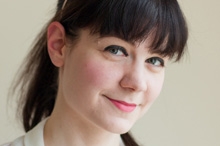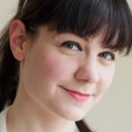

Ariel Waldman is being honored as a Champion of Change for her dedication to increasing public engagement in science and science literacy.
Science should be something that is disruptively accessible. Citizen science is less about replicating science experiments and more about people from any background being empowered to create new ways to explore the overlooked, underfunded and fringe areas of science. Unfortunately, the relationship most adults have with scientific exploration is one of observation: watching government agencies and scientists explore on behalf of us, but not actually exploring it ourselves.
That was my relationship with space exploration prior to 2008. That year, I was watching a documentary on the Discovery Channel, called When We Left Earth, and I became so inspired by it that I decided to randomly send NASA an email, volunteering myself to help in case they ever needed someone like me. I have no formal science background; my degree is in graphic design and I had been working at an ad agency for a number of years. Serendipitously, I got a job at NASA from that email. Never having expected to work at NASA, the experience was life changing – setting me on a mission to enlighten others that they, too, can actively contribute to science.
After NASA, I created Spacehack.org, a directory of ways to participate in space exploration. From discovering galaxies to building spacecrafts, Spacehack.org catalogs how anyone can actively contribute to scientific discovery and exploration. There has been a considerable movement in the last few years to make science more open between scientific disciplines and to the perceived “public”. But simply making science open – by placing datasets, research, and materials online and using open source licensing – is only half the battle. Open is not the same as accessible.
Open science materials are often very cryptic or are buried deep within a government website where they’re not easy to find. You only need to look at projects on Spacehack.org, like Galaxy Zoo, to understand the importance of making science accessible. The Sloan Digital Sky Survey had opened up their data, but it wasn’t until Zooniverse, the group behind Galaxy Zoo, created a thoughtful interface for it that it truly became accessible for hundreds of thousands of people to interact with it and actively contribute to scientific discovery through it. So how can we continue to make science more disruptively accessible across all science disciplines, geographies, industries and skill-sets?
Born out of this frustration that there's actually quite a bit of open science "stuff" but no one is actually doing anything interesting with it, came an event called Science Hack Day. Science Hack Day is a 48-hour-all-night event that brings together designers, developers, scientists and other enthusiastic geeks in the same physical space for a brief but intense period of collaboration and building cool, weird, amazing things. A hack is a unique modification, an interesting mashup or a quick solution to a problem – maybe not the most elegant solution, but often the cleverest. You don't need to be a scientist or a hacker to attend, you just need to get excited and make things with science. By having a fresh set of eyes from those who solve different types of problems across a variety of industries inside and outside of science, new concepts often emerge and can go on to influence science and adults’ relationship to science in unexpected ways.
I am the global instigator for Science Hack Day – working with passionate people in countries around the world who want to organize a Science Hack Day in their own city. There's an open source set of instructions for how anyone can create a Science Hack Day at http://sciencehackday.com. I am incredibly amazed to be included as a Champion of Change in Citizen Science. I never imagined I could work at NASA and I never imagined I would be honored by the White House for sharing my excitement about science and space exploration. Through hacking, anyone can actively contribute to science, and often in surprising new ways.
Ariel Waldman is the Founder of Spacehack.org.


